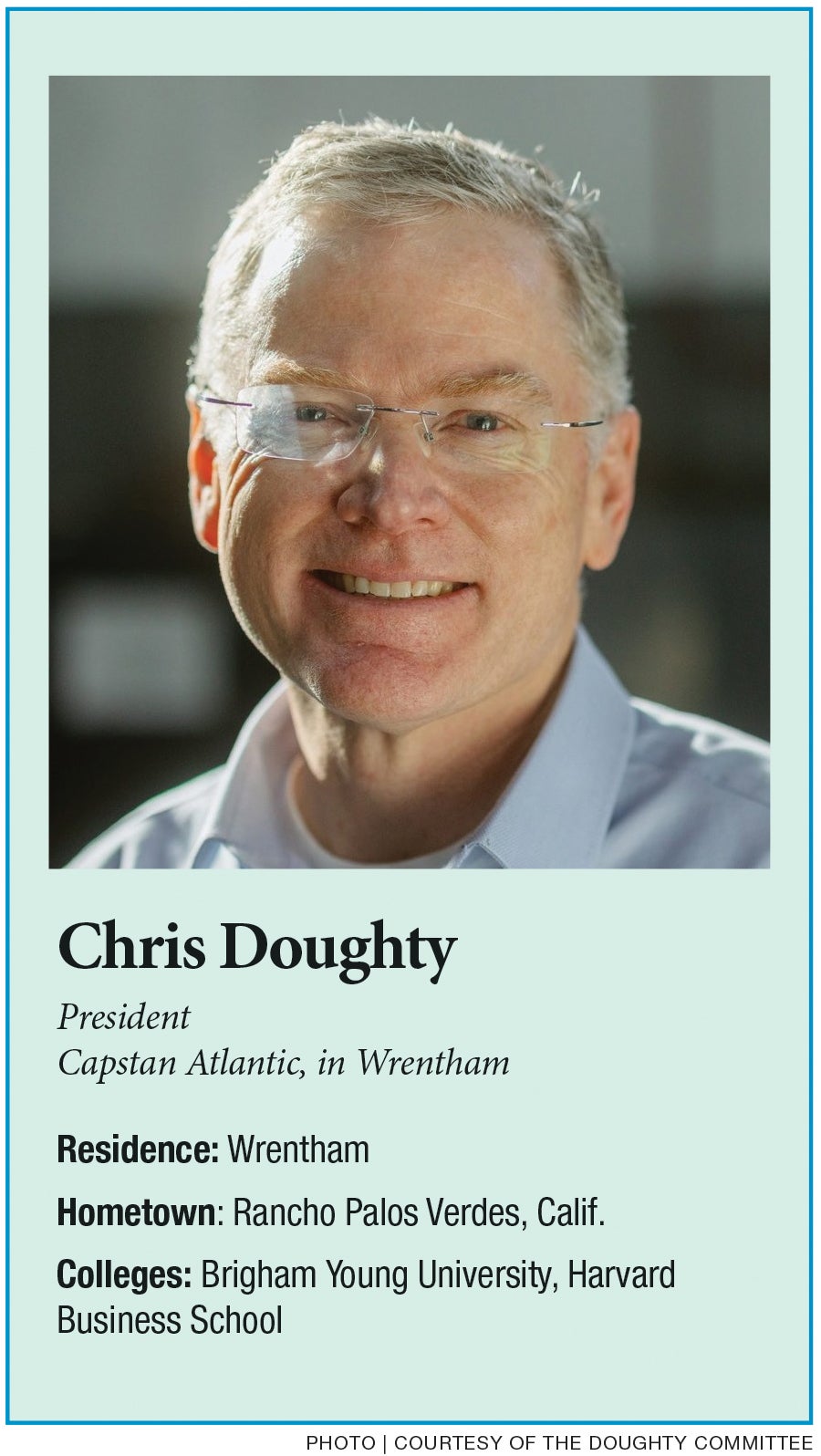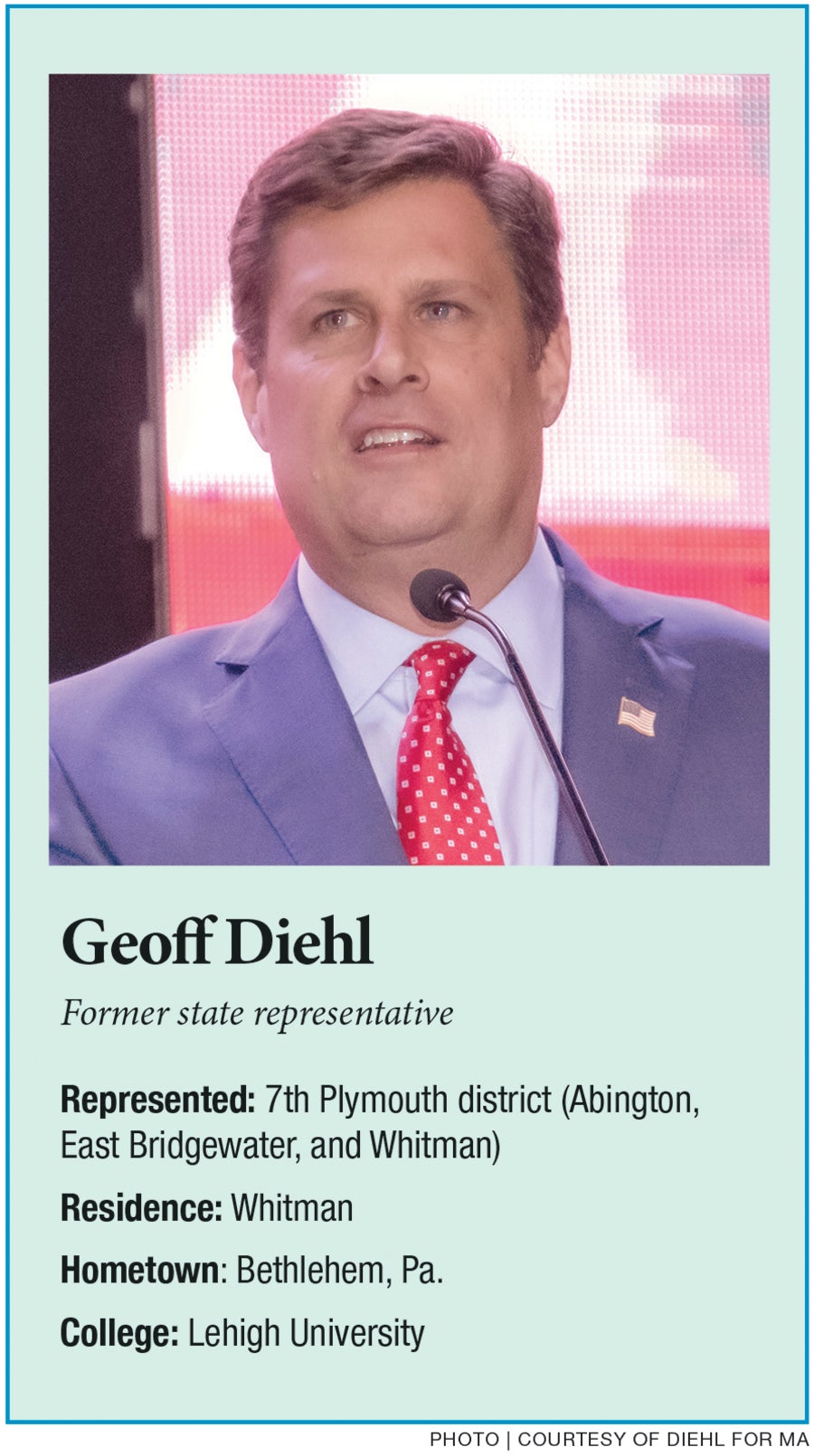WBJ spoke to both Geoff Diehl and Chris Doughty separately after the convention to ask about economic issues in Central Massachusetts and the commonwealth as a whole.
Get Instant Access to This Article
Subscribe to Worcester Business Journal and get immediate access to all of our subscriber-only content and much more.
- Critical Central Massachusetts business news updated daily.
- Immediate access to all subscriber-only content on our website.
- Bi-weekly print or digital editions of our award-winning publication.
- Special bonus issues like the WBJ Book of Lists.
- Exclusive ticket prize draws for our in-person events.
Click here to purchase a paywall bypass link for this article.
On May 21, Massachusetts Republicans convened at Springfield’s MassMutual Center to anoint their candidates in the 2022 race for governor, seeking to replace the outgoing Republican Charlie Baker. The two candidates who will appear on the Sept. 6 primary ballot are former state representative Geoff Diehl and Wrentham businessman Chris Doughty. Diehl has more experience in state politics and the endorsement of former President Donald Trump, but Doughty, the president of Capstan Atlantic, has found success with an economic message focused largely on his strong belief in the free market.
The Worcester Business Journal spoke to both Diehl and Doughty separately after the convention to ask about economic issues in Central Massachusetts and the commonwealth as a whole.
What would you do as governor to support the biopharma industry and manufacturing in the central part of the state, given today’s supply chain issues?
Chris Doughty: This is the world I come from. A couple of thoughts. I want to support all industries, not just one. That’s a mistake we’ve made in our state. Every industry is important.
Two is a good tax policy. If you look at New Hampshire, a lot of businesses are planning and looking at New Hampshire because of good tax policy. As governor, that’s one of the first things I want to work on. I want to create a tax policy so we can compete with New Hampshire and Tennessee and all these other states with favorable tax policies, as an incentive to keep our businesses here, and to begin attracting businesses to our state.
In Massachusetts, we’ve layered regulations on regulations on regulations that have made us less business friendly as a state. We’re known as a state with a heavy regulatory burden on businesses. I’d like to start removing as many as I can with our state leaders and business community, to make it so we have a reputation as being more pro-business.

Geoff Diehl: Coming from a background where my wife and I own a business, and I used to work in manufacturing as well, I know labor and energy costs tend to be a bit higher here than other parts of the country. Our job is to keep those businesses in the state and not let them leave, but on top of that, the job of the governor is to recruit companies. Biomanufacturing is one of those industries where it’s very easy to make a case that people need to come to Massachusetts to be a part of it. It’s almost the Silicon Valley of the East Coast when it comes to technology and what it means for health care and our future.
Energy is a huge part of the cost when you’re dealing with those raw materials. Beyond just supply chain issues they may face, you want to make sure the state is keeping those energy costs as low as possible for manufacturers. There’s an overall attempt to make sure our energy consumption reflects a cleaner environment, but at the same time I want to make that transition palatable and something manufacturing can handle. Otherwise, because of the cost, you’ll see very quickly people decide they have to take their plants elsewhere.

What would you do to make sure there’s plenty of housing for people who want to come and work in Massachusetts?
Diehl: Worcester is certainly known for being a college town, and we want to retain as many of those students as we can. It’s great they all come to Massachusetts for their education, but we want to keep them. Facebook was started at Harvard University, but it ended up moving out west. We could have maybe kept them if we’d been more aware of what we could do to make sure the overall business environment was good and that housing options were there.
Central and Western Massachusetts have a lot of post-industrial cities with some buildings that could be renovated and created for more affordable housing. I know in Ludlow and Essex, they have a lot of these old paper mills they're taking and turning into apartments and condos. If we can rehabilitate them into affordable housing units, that takes some of the pressure off.
Doughty: We need to open up the pathway for students and people to get into the trades: electricity, plumbing, carpentry. I would like to put a strong emphasis on workforce development, creating pathways that are quick and easy and well-developed for people to move into those trades that we need to build more homes.
I run a manufacturing company that has suffered from not having enough workforce, and there are collaborations that the state, the business community, and education can do together to increase the supply of workers to those trades to help the bottlenecks in the supply of housing.
Two is, again, regulations. We have created so many regulations that make it difficult to build workforce housing. I was talking to one developer who said it can take a year to get through all zoning and all the permitting to build something. We call this bottlenecks in manufacturing.
Nurses at Saint Vincent Hospital in Worcester went on strike for more than 300 days, starting last year, protesting staffing ratios amid an ongoing pandemic. This seems to speak to a deeper issue with the workforce, but for health care especially because nurses are putting themselves directly at risk. How do we address this systemic issue within the healthcare industry?
Doughty: Here’s a case where there is a great demand as a result of COVID for nurses and inadequate supply as a result, which led to the burnout. Whenever you have supply-and-demand problems, you have to look at, “Is the government getting in the way of the free market?” I’m a big believer in letting the free market do what it wants to do. Increasing the supply is about simplifying things, reducing regulations, reducing government interference, making it easier for nurses to get their certification.
On the demand side, there are some things we can do, like reducing some of the things that make it complicated. For example, things like Medicaid billing are so complex. If we focus on training and simplification, that will allow nurses to do their job, that’ll move the supply curve. It’s a lot of small things that can be done.
Diehl: I was traveling and having breakfast at a hotel, and I was talking to some traveling nurses. I asked what hospital they were from, and they said they were fired because they weren’t taking the COVID-19 vaccine. Some of the situations with the hospitals are very frustrating, because what ended up happening is the remaining nurses had tremendous pressure on them in order to fill shifts and deal with the workload.
I was in the legislature back when we had to incentivize doctors to move out of the Boston area to Central and Western Massachusetts, because there were less doctors than needed for per-capita population. Part of it was because they couldn't recoup the cost of going to medical school to live out in Western Mass. That’s one short-term way to help direct the flow into the workforce in areas like health care.
This interview was conducted and edited for length and clarity by WBJ correspondent Laura Finaldi.

